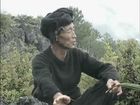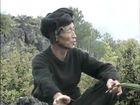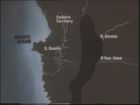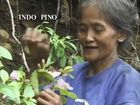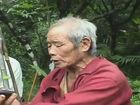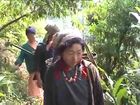Browse Titles - 11 results
Daba / Na Shaman
Daba / Na Shaman (Teacher's Edition)
View Teaching Guide for this video.
After more than a quarter of a century without any form of religious ceremony, the Na, an ethnic group living on the Himalayan plateau, began openly practising their religion again in the early 1990s. Their priests are called daba. Among the few old shamans who are still livin...
View Teaching Guide for this video.
After more than a quarter of a century without any form of religious ceremony, the Na, an ethnic group living on the Himalayan plateau, began openly practising their religion again in the early 1990s. Their priests are called daba. Among the few old shamans who are still living today, Dafa Luzo is the most remarkable. As the main character in the film, we see him looking after his farm and his family, as well...
View Teaching Guide for this video.
After more than a quarter of a century without any form of religious ceremony, the Na, an ethnic group living on the Himalayan plateau, began openly practising their religion again in the early 1990s. Their priests are called daba. Among the few old shamans who are still living today, Dafa Luzo is the most remarkable. As the main character in the film, we see him looking after his farm and his family, as well as performing rituals to expel all unclean spirits and demons and honour the ancestors. His main worry, and his greatest hope, is to make sure his knowledge is safely handed down to the next generation.
Show more Show lessDisappearing World, Embera: The End of the Road
Gods and Satans (Dieux et Satans)
Indo Pino
Los Guardianes Del Mayab
Ritual Journeys
Ritual Journeys (Teacher's Edition)
View Teaching Guide for this video.
The film is an intimate portrait of Merayk, an 80 years old Lepcha shaman or Padim. Merayk lives with his family in Dzongu, a Lepcha reserve in North Sikkim. He performs healing rituals for individuals as well as rituals for the well-being of the household, the clan and his v...
View Teaching Guide for this video.
The film is an intimate portrait of Merayk, an 80 years old Lepcha shaman or Padim. Merayk lives with his family in Dzongu, a Lepcha reserve in North Sikkim. He performs healing rituals for individuals as well as rituals for the well-being of the household, the clan and his village community. Cameraman Dawa Lepcha followed Meyrak and recorded his daily life and rituals between 2003 and 2007.
View Teaching Guide for this video.
The film is an intimate portrait of Merayk, an 80 years old Lepcha shaman or Padim. Merayk lives with his family in Dzongu, a Lepcha reserve in North Sikkim. He performs healing rituals for individuals as well as rituals for the well-being of the household, the clan and his village community. Cameraman Dawa Lepcha followed Meyrak and recorded his daily life and rituals between 2003 and 2007.
Show more Show less
